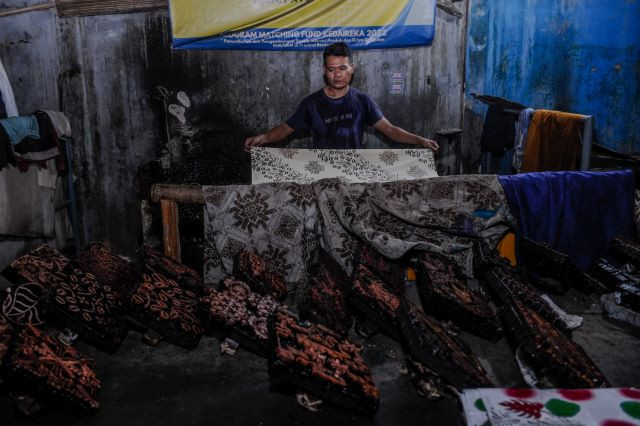Popular Reads
Top Results
Can't find what you're looking for?
View all search resultsPopular Reads
Top Results
Can't find what you're looking for?
View all search resultsCostly cooperatives gamble
Change text size
Gift Premium Articles
to Anyone
P
resident Prabowo Subianto’s goal of establishing between 70,000 and 80,000 new cooperatives using loans from state-run lenders is problematic and could pose a serious financial risk.
The planned concessional funding of up to Rp 400 trillion (US$24.3 billion) is no small amount, and experts have warned it could have a significant impact on state-owned banks’ earnings and nonperforming loans (NPLs).
While the government has promised to pay these loans with village funds provided each year, we should be wary that the commitment might falter in the future, as the administration has a great number of things it wants to spend on and the state has a tendency to delay payments to SOEs.
A further concern is that the government has only allocated Rp 71 trillion in village funds this year, a slight, Rp 2 trillion increase from last year.
Loans to cooperatives have carried an average NPL rate of 8.5 percent in the past years, according to ratings agency Pefindo, which is significantly higher than the banking sector’s overall NPL ratio of around 2 percent.
This would certainly add to the burden to state-run lenders, which have been running micro loan programs from the past administration, many of which did not perform well, as shown by the surge of default claims received by state-run credit insurers.
Indonesia has a long and rich history of cooperatives, with one of the country’s founding fathers once envisioning these institutions as the nation’s main economic platform, although that dream has not materialized.
The current administration aims for these cooperatives to become an integral part of improving villages’ economies, such as by having cooperatives bridge the gap of informal financing, which is otherwise filled by loan sharks or online lending.
Other initiatives include pushing these cooperatives to absorb local agricultural produce and simplifying food distribution chains, which is in line with Prabowo’s food self-sufficiency goals.
However, cooperatives must begin with grassroots movements instead of top-down imposition. This makes them more likely to be sustainable because they are driven by the members' genuine interest and participation.
The top-down approach also stops these institutions from cultivating the necessary buy-in, ownership and accountability in the communities they are meant to serve.
Bypassing cooperatives’ organic nature, President Prabowo’s plan risks creating ones that are unsustainable, poorly managed and disconnected from the realities of their members.
The government estimated that there were over 130,000 cooperatives in the country in 2023, down from over 209,000 a decade prior, after many were disbanded for the exact reason mentioned above. It is very possible that these tens of thousands of new cooperatives will share the same fate.
Establishing so many cooperatives requires not only significant financial resources but also robust infrastructure for training, monitoring and support.
Eight cooperatives failed to return at least Rp 26 trillion to their members in the past decade as a result of mismanagement and embezzlement. Many members put their life savings or retirement money in these scandal-wracked institutions only to get next to nothing in return.
This serves as a reminder that the government has not historically been capable of properly overseeing these cooperatives, let alone preventing fraud to begin with.
We can't rule out that these programs would be just another opportunity for corruption and embezzlement, which would cost the state dearly.
Rather than focusing on the numbers, President Prabowo ought to create an environment that helps new cooperatives emerge organically while existing institutions thrive and upscale on their own merit.
The goals of helping marginalized communities, reducing inequality and fostering local entrepreneurship are laudable, but the government must address serious concerns about financial sustainability and long-term viability, especially with the huge sums of taxpayer and bank customers' money on the line.











